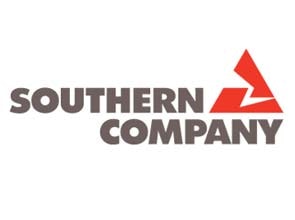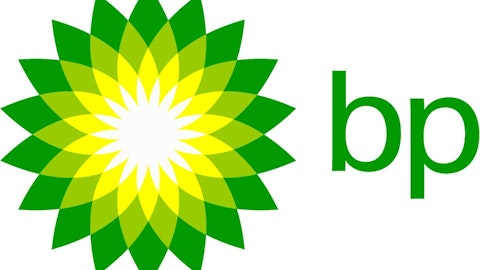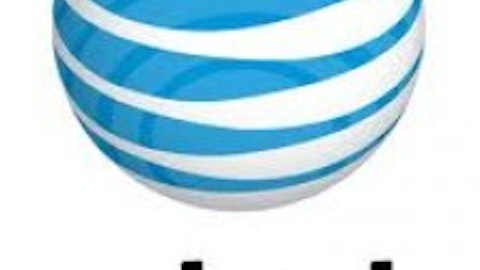In June 2011, I invested my money equally in a selection of 10 high-yield dividend stocks. With a year of success behind me, in July 2012, I added even more money to the portfolio.

Those names offer triple the yield of the average S&P 500 stock. You can read all the details here. Now let’s check out the results so far.
| Company | Cost Basis | Shares | Yield | Total Value | Return |
|---|---|---|---|---|---|
| The Southern Company (NYSE:SO) | $39.71 | 25.0818 | 4.2% | $1,184.61 | 18.9% |
| Exelon | $41.36 | 28.818 | 3.6% | $1,000.56 | (16%) |
| National Grid | $48.90 | 20.3693 | 5.7% | $1,211.36 | 21.6% |
| Philip Morris International Inc. (NYSE:PM) | $68.49 | 14.5429 | 3.6% | $1,374.74 | 38% |
| Ryman Hospitality | $44.93 | 24.7 | 4.6% | $1,086.06 | (2.1%) |
| Plum Creek Timber | $38.42 | 26 | 3.3% | $1,341.60 | 34.3% |
| Brookfield Infrastructure Partners | $26.12 | 38.2825 | 4.6% | $1,448.99 | 44.9% |
| Vodafone Group Plc (ADR) (NASDAQ:VOD) | $26.75 | 56.7566 | 5.3% | $1,598.83 | 5.3% |
| Seaspan | $15.24 | 95 | 6.6% | $1,900.00 | 31.3% |
| AT&T Inc. (NYSE:T) | $35.20 | 28.4 | 4.8% | $1,076.64 | 7.7% |
| Retail Opportunity Investments | $12.20 | 81.95 | 4.3% | $1,148.12 | 14.8% |
| Annaly Preferred C | $25.98 | 38.5 | 7.4% | $990.99 | (0.7%) |
| Cash | $291.53 | ||||
| Dividends Receivable | $24.71 | ||||
| Original Investment | $12,983.97 | ||||
| Total Portfolio | $15,678.76 | 20.8% | |||
| Investment in SPY (Including Dividends) | 19.6% | ||||
| Relative Performance (Percentage Points) | 1.2 |
Source: Capital IQ, a division of Standard & Poor’s.
The portfolio continued to perform strongly, despite the gyrating markets. We now stand at a 20.8% gain, and we’re leading the S&P benchmark by 1.2 percentage points — up 0.3 percentage points since the last report. When our portfolio outperforms for a while, I usually take it as a sign that the markets are getting a bit more cautious and deciding to move to dividend stocks, which are traditionally seen as safer.
The blended yield is still a robust 4.9%, and we have nearly $300 in cash in the portfolio, with almost $25 more on the way in the next 10 days.
Things looked cheery for Vodafone Group Plc (ADR) (NASDAQ:VOD) earlier this week, as it was rumored from “usually reliable sources” that AT&T and Verizon Communications Inc. (NYSE:VZ) were tag-teaming for a bid on the U.K.-based telecom. But Verizon busted those rumors later, saying that it was not “currently” looking at a deal for Vodafone in whole or in part.
I’m pretty skeptical of Verizon Communications Inc. (NYSE:VZ)’s dismissal, especially with the use of the word “currently.” We know the telecom has been sniffing around Vodafone for a while, and with its wireline business generating little profit, the company needs Verizon Wireless if it wants to pay its dividend from cash flow and not go increasingly into debt. Vodafone Group Plc (ADR) (NASDAQ:VOD), on the other hand, is in a different boat, since it has paid out its regular dividend for years without disbursements from Verizon Wireless. A deal will happen sooner or later — the only question is how favorable it will be to Vodafone Group Plc (ADR) (NASDAQ:VOD) shareholders. The rumored deal price would put Vodafone Group Plc (ADR) (NASDAQ:VOD)’s shares near $40. The prospect of a buyout is also why my Special Situations portfolio acquired options in Vodafone.
The Southern Company (NYSE:SO) experienced at an explosion at Plant Bowen, north of Atlanta. The coal-fired plant is one of the largest power generators in the United States. All workers were accounted for shortly after the incident.
Fellow Fool Dan Caplinger grades Philip Morris and gives the tobacco giant a middling score. Though he (rightly) doesn’t ding the company for its lack of equity and therefore immeasurable return on equity, the score of 4 out of 8 looks worse for those omissions. In this company’s case, it’s less vital to have equity because it’s such a steady cash generator. In fact, many of the best cash generators run with little equity on their balance sheet. They just don’t need to retain their earnings. Dan also notes the increasing legal pressure on Philip Morris in overseas markets.
Annaly Capital Management, Inc. (NYSE:NLY) has been a popular stock for the past few years because of its hefty dividend. But Fool John Maxfield has long been skeptical of the company, in particular management. Now executives are asking the company to externalize its management structure to a business owned by them, a possibility that creates clear conflicts of interest. Watch John in this video to see what he thinks of the move.
Dividends and earnings announcements
Here’s the recent news on earnings and dividends.
Dividend news:
Philip Morris went ex-dividend on March 26 and pays out $0.85 per share on April 12.
Annaly Series C went ex-dividend on Feb. 27 and paid out almost $0.48 per share on April 1.
Ryman Hospitality went ex-dividend on March 26 and paid out $0.50 per share on April 11.
All that, of course, means more money coming into our pockets.
It’s fun to sit back and get paid, and with the market volatility, we might have a good chance to reinvest those dividends at good prices. Europe continues to be an absolute mess, and continued bad news will probably have stocks plunging again. If they do, I’ll be inclined to pick more shares up.
Foolish bottom line
I’ve been a fan of big dividends for a while, and I think this portfolio will outperform the market over time through the power of dividends. As I promised in the original article, I’ll continue to track and report on the portfolio’s progress, including news on these companies.
The article The World’s Best Dividend Portfolio originally appeared on Fool.com and is written by Jim Royal.
Jim Royal, Ph.D., owns shares of the 12 portfolio stocks mentioned in the table and is short April $20 calls on Seaspan. The Motley Fool recommends Brookfield Infrastructure, Exelon, National Grid, Retail Opportunity Investments, Seaspan, Southern, and Vodafone and owns shares of Brookfield Infrastructure, Philip Morris, Retail Opportunity Investments, Ryman Hospitality, and Seaspan.
Copyright © 1995 – 2013 The Motley Fool, LLC. All rights reserved. The Motley Fool has a disclosure policy.


